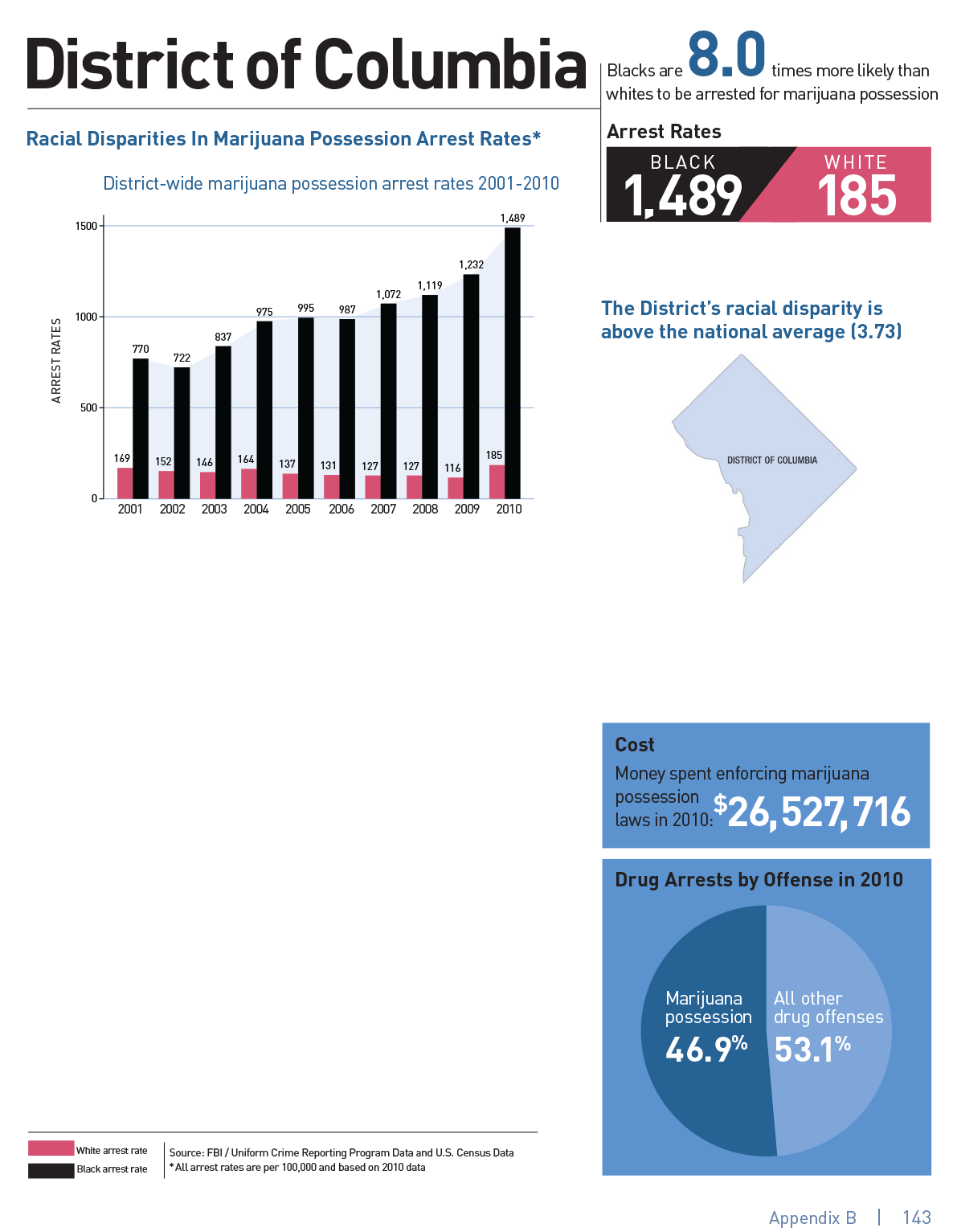|
PRESS RELEASE |
CONTACT: Adam Eidinger 202-744-2671 |
DC Cannabis Campaign Calls On Mayor Gray To Issue Moratorium On Marijuana Arrests
Congressional Review May Take Three Months and DC Residents Should Not Continue To Be Arrested
WASHINGTON, DC – Today, the DC City Council passed the “Marijuana Possession Decriminalization Amendment Act of 2014” (B20-0409). This historic legislation will reduce the criminal penalties associated with the possession of less than one ounce of marijuana in the District of Columbia. Instead of facing arrest and potential jail time, citizens will have their marijuana and paraphernalia confiscated and will be issued a $25 ticket. Citizens caught smoking marijuana in public, possessing more than one ounce, or selling marijuana will still face criminal penalties and possible jail time.
After damning reports issued by the American Civil Liberties Union of the National Capital Area and the Washington Lawyers’ Committee for Civil Rights and Urban Affairs showed that the District of Columbia leads America in the racial disparities for marijuana arrests, Councilmembers Tommy Wells and Marion Barry introduced “Simple Possession of Small Quantities of Marijuana Decriminalization Act of 2013” on July 9, 2013. The legislation originally called for civil fines of $100 for possession and consumption of marijuana in public instead of arrest. At the first public hearing on October 23, 2013, witnesses suggested that the legislation be amended to reduce the civil fines to $25, similar to the current fine for the possession of an open container of alcohol in Washington, DC. At the second hearing on October 24, 2013, the Mayor’s office brought up their belief that the public consumption should remain illegal. To address these concerns, the legislation was further amended to keep the $100 fine for the public consumption of marijuana and make the fine $25 for the possession of marijuana. Lastly, in early February 2014, at the urging of Mayor Vincent Gray and Police Chief Cathy Lanier, the legislation was further amended by DC Council Chairman Phil Mendelson to remove the $100 civil fine and keep criminal penalties in place for the public consumption of marijuana.
“While we support the dramatic reduction in penalties associated with marijuana possession, this legislation will still allow the police to continue to hassle and arrest District residents who choose to smoke marijuana,” says Adam Eidinger, Chairman of the DC Cannabis Campaign, a political committee working on a District ballot imitative that will further reduce criminal penalties associated with marijuana possession and cultivation of marijuana. “We are organizing so voters have a say on whether marijuana should be fully legal this November.”
“Mayor Gray should issue a moratorium on arrests for the possession of marijuana while the legislation is under Congressional Review. How many more DC residents need to be arrested while we wait for Congress?” asks Eidinger. “This is a Home Rule issue now and the Mayor needs to side with the people.”
The DC Cannabis Campaign is currently waiting for the DC Board of Elections to approve the campaign’s ballot initiative language. Upon approval, the campaign will need to obtain more than 25,000 valid signatures from registered DC voters by July 7 in order to put the initiative on the general election ballot in November.
For more information about the DC Cannabis Campaign, visit www.DCMJ.org.
